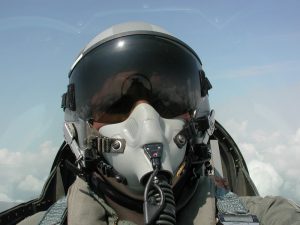
Most people would agree that “Astronaut” is perhaps one of the most impressive and interesting job roles you could ever take part in. To this day, children dream about growing up and heading to the Moon or even Mars in a billion-dollar rocket.
That said, astronauts aren’t solely cosmic adventurers, but also highly accredited, deeply specialized staff boasting years of training and technical expertise to get where they are. No one gets to space by accident.
When a professional is approved to undergo astronaut training, they claim the designation “Space Cadet.”
This training program is unlike any other. Space cadets must train to live in optimal mental and physical shape, and learn to survive in stark circumstances. They must be capable of thinking through emergency situations calmly, of understanding protocol to the letter, and of being able to ply a technical trade in a high-pressure, unyielding environment.
NASA is the most well-known governmental space agency in the world, but of course various countries and even private companies have their own space programs.
What does it take to become a space cadet?
To become accepted for the space cadet training programs for prestigious space agencies like NASA, or private companies like SpaceX or Blue Origin is no easy task. Each year the cadet programs gain tens of thousands of applications, which sometimes have to be whittled down to less than a dozen.
Often, astronauts are highly accredited technical specialists with degrees in fields such as aeronautics, rocket science, mathematics, the various sciences, and more. In many cases, master’s or even doctorates are specific necessities depending on the role at hand.
Space cadets are also expected to have the ability to stay calm under pressure, strong problem-solving skills, high levels of physical fitness, no medical concerns (within reasons), and high levels of emotional durability and mental endurance.
Space cadet training programs are often designed with the same stringent standards you’d expect to find in military programs. After all, these cadets will one day willingly go into arguably the harshest professional environment anyone could occupy.
What training regimen do space cadets follow?
Depending on the space agency or private enterprise designing the training program, this can differ.
However, many of them follow a similar blueprint:
- Basic training – as with any military force, space cadets must embark on a period of team-building, fitness, and psychometric exercises designed to help each cadet optimize their personal and professional capabilities. After all, this is more than a job, but a possible lifestyle led in a space station, or one supporting other astronauts in high-stakes situations.
- Spacewalk training – the famous spacewalk popularized by many forms of media is a training necessity for all astronauts. Being able to navigate outside of the spacecraft like the International Space Station (ISS) is essential. Maneuvering calmly in low-gravity environments and working with precise engineering tools is no small feat, and as such will be a large part of training.
- Technical training – space cadets are familiarized with all operational spacecraft systems, design, troubleshooting, as well as personal equipment. It’s important for them to know every inch of their temporary home so they can correctly identify issues and resolve them quickly.
- Simulation training – from zero-gravity flights to deep underwater training, space cadets must simulate the physical realities and high-pressure surroundings of the environment they hope to operate in. Underwater cabins designed to simulate the stark environment of a space station are a distinctive training tool, because it’s one of the best means of replicating such an environment under strict control.
- Language training – of course, the International Space Station is just that, international, meaning astronauts from Canada, Japan, Russia, the US, the UK, and many European regions have space in the program. While astronauts might not speak every language, the main language spoken on the ISS is English, and sometimes Russian. Of course, not every space cadet will speak these languages depending on their country of origin, and so learning this is important.
Does this include the recently formed “Space Force”?
The Space Force is a recently formed and small branch of the United States Air Force, designed to enhance space security and combat power projection as a pre-emptive effort. It boasts less than 9,000 members. Its goal is to “provide freedom of operation for the United States in, from, and to space.”
As such, this is a military branch and independent from the public space agencies such as NASA, even though the two are known to liaise.
Could you be the next space cadet recruit? If so, we hope this information has helped.
